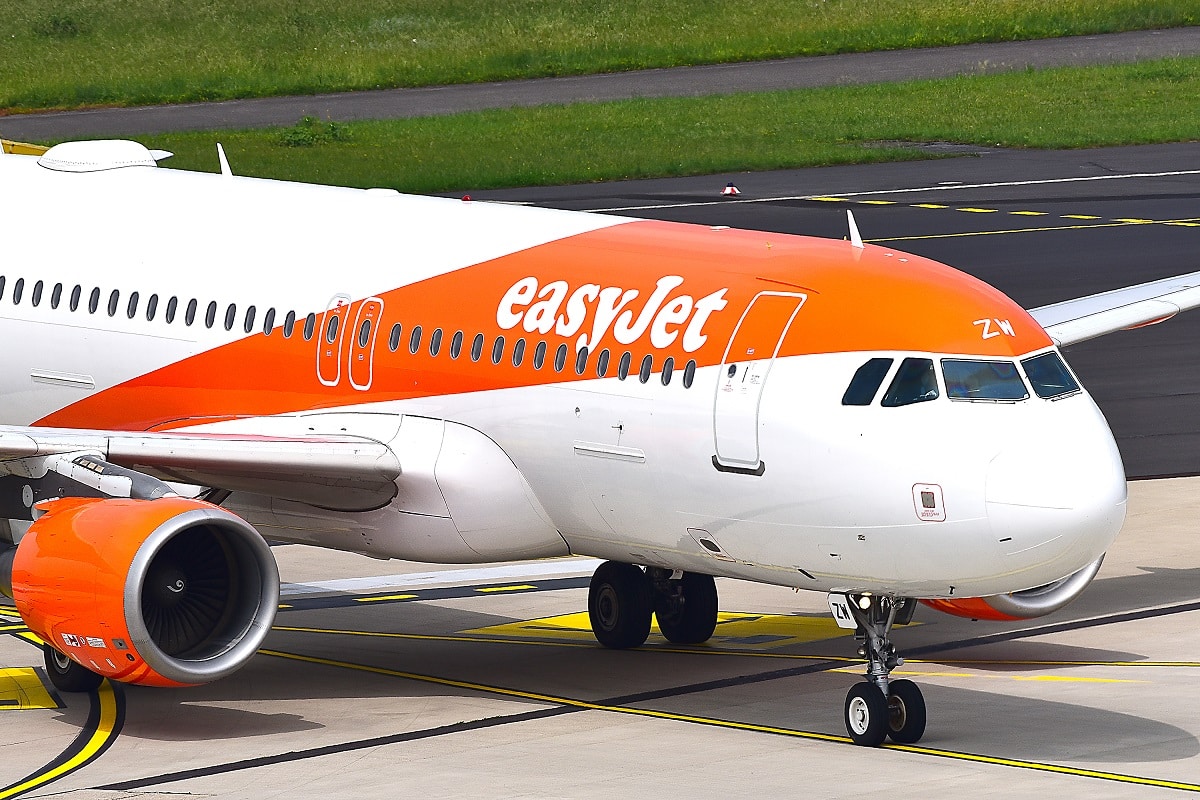EasyJet, and others in the aviation industry, have released a new report championing hydrogen-powered flight, signalling a transformative shift towards sustainable aviation. Here’s the full story.
Unexpected Voice
As the climate catastrophe continues apace and the UK government seems consumed with the prospect of sticking its head in the sand over the issue of sustainability goals, an unexpected voice has emerged calling for more significant investment in sustainable travel options.
EasyJet, a low-cost airline based in the UK, recently expressed support for the development of hydrogen-powered flight technology. The company, along with other key players in the aerospace sector, has emphasized the potential of hydrogen as a zero-emission solution for decarbonizing aviation.
New Base
This discussion of the future of low-carbon air travel comes as EasyJet launches its first new base in over ten years, in Birmingham. The prospect of hydrogen-powered flight represents a significant advancement in aviation technology.
In collaboration with Airbus, Rolls-Royce, and GKN, EasyJet envisions a future where hydrogen planes could become a reality by the end of the next decade.
Johan Lundgren, EasyJet’s chief executive, acknowledged the remarkable progress made in this field and highlighted the UK’s potential to pioneer this transformative technology. Lundgren stated, “What needs to happen is not to just fly an aircraft, but how you industrialize it.”
While hydrogen holds promise as a sustainable aviation fuel, the road ahead is littered with technical and industrial challenges.
Public Funding
The Hydrogen in Aviation Alliance, made up of industry experts, released a report emphasizing the need for public funding to support research and development.
Ensuring regulations are in place, that airport infrastructure is ready for the change, that a skilled workforce has been trained and is ready for the development of hydrogen aircraft, and that a reliable hydrogen supply chain exists are all vital components of the roadmap for transitioning to hydrogen-powered flight.
“Actions By Timeline”
Lundgren stated that the latest Hydrogen in Aviation Alliance report was “the first time we’ve had everyone across the board saying what’s needed, from experts across the field, setting out actions by timeline before we can see hydrogen aircraft in the sky at a large scale.
He continued, “The breakthroughs in hydrogen-powered technology happening across the UK are truly astonishing but these advances will be inconsequential if we fail to complement them with the appropriate skills, infrastructure, investment and regulation needed.”
Hydrogen Strides
Industry leaders, including Alan Newby from Rolls-Royce and Russ Dunn from GKN Aerospace, acknowledged the strides in hydrogen technology while underscoring the infrastructure challenges.
Newby called for greater investment in hydrogen generation from renewable sources, stating, “Green hydrogen is just not around. That needs to go up the food chain.”
Dunn echoed Lundgren’s hopes and concerns, stating, “I truly believe in the next decade we will see hydrogen in flight—but only if airports and infrastructure are there. That means the right government policy and regulations to be ready to transfer aviation into a sustainable future.”
Hydrogen Flight by 2035
For its part, Airbus reaffirmed its commitment to developing a hydrogen-powered aircraft, aiming to have a 100-seat hydrogen-powered plane in operation by 2035. This goal, though ambitious, aligns with the broader industry efforts towards achieving carbon neutrality in aviation. Though aviation is nowhere near as large a polluter as cars, air travel still makes up around 2% of annual global emissions.
EasyJet has set a target of integrating hydrogen-powered planes into its fleet by 2040, and while acknowledging existing uncertainties, Johan Lundgren expresses confidence in the company’s ability to overcome the hurdles in place. He stated, “We wouldn’t be on this journey if we didn’t think there was a very good prospect of them being resolved.”
EasyJet’s decision to establish a base in Birmingham was held up by the company as evidence of its commitment to sustainable growth, with the introduction of 16 new routes and the creation of 140 jobs.
However, questions have been asked regarding the sustainability of domestic flights, particularly when alternative modes of transportation that pollute considerably less, such as trains, are available.
Zero-Carbon Dream
As aviation companies like EasyJet embrace the potential of hydrogen-powered flight, issues still need to be addressed before the dream of zero-carbon flight becomes a reality.
Lundgren has admitted that the costs involved would be “staggering.” Still, the cost of such research would pale compared to the cost humanity would suffer should the climate catastrophe continue unabated.
There may be hope that, though the road ahead is challenging, the flight of the future could be powered by clean, renewable energy sources, ushering in an era of environmentally conscious air travel.
More Articles Like This…
Broken Britain: 12 Reasons Behind the UK’s Decline
Say the Unsayable: 10 Occasions When Farage Spoke His Mind About Britain
The post Big Names in UK Airlines Advocate for Hydrogen-Powered Flight first appeared on Edge Media.
Featured Image Credit: Shutterstock / Vytautas Kielaitis.
Grant Gallacher is a seasoned writer with expertise in politics and impactful daily news. His work, deeply rooted in addressing issues that resonate with a wide audience, showcases an unwavering commitment to bringing forth the stories that matter. He is also known for satirical writing and stand up comedy.

